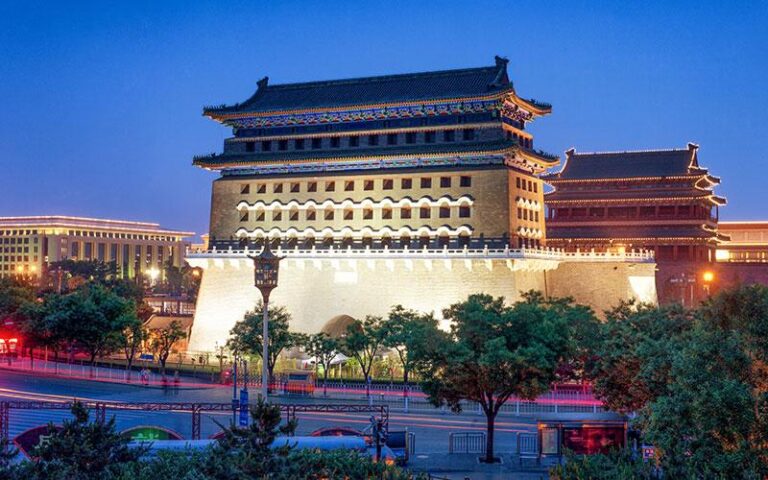China has announced it will remove tariffs on nearly all goods imported from Africa, a significant move aimed at deepening economic ties with the continent. The decision comes amid growing criticism from both China and African nations of U.S. trade policies, highlighting a shifting dynamic in global trade alliances. This landmark tariff adjustment underscores Beijing’s strategy to strengthen cooperation with Africa while challenging Washington’s trade dominance.
China Eliminates Tariffs on African Imports to Boost Trade and Strengthen Diplomatic Ties
China’s bold move to eliminate tariffs on nearly all African imports marks a significant shift in its trade and foreign policy strategy. The decision is expected to invigorate economic ties by making African goods more competitive in the Chinese market, thereby expanding opportunities for exporters across the continent. Key sectors likely to benefit include:
- Agriculture: commodities like coffee, cocoa, and fresh fruits
- Minerals: raw materials and precious metals
- Manufacturing: textiles and light industrial goods
Beyond economics, this tariff rollback signals Beijing’s intention to deepen its diplomatic rapport with Africa, positioning itself as a partner of choice amid growing geopolitical tensions. Both sides have publicly criticised the United States for what they describe as protectionist policies, aligning in a shared narrative to enhance South-South collaboration. This move not only boosts trade volumes but also strengthens political solidarity, promising a more integrated future in global affairs.
| Year | China-Africa Trade Volume (USD Billion) | Tariff Rate on African Goods |
|---|---|---|
| 2021 | $208 | 5-10% |
| 2023 | $282 | 0% |
Shared Criticism of US Trade Policies Signals Growing Sino-African Economic Alliance
In a significant move underscoring the deepening economic ties between China and Africa, Beijing has announced it will eliminate tariffs on nearly all African goods entering the Chinese market. This unprecedented policy shift comes amid growing frustration on both sides over perceived protectionist measures and trade barriers imposed by the United States. African nations, long reliant on exports to Western markets, are now increasingly aligning with China’s open trade agenda as part of a broader strategy to diversify economic partnerships and reduce dependency on Western powers.
Critics argue that US trade policies, including tariffs and sanctions, have limited market access for African exporters and constrained China’s expansive Belt and Road initiative across the continent. This shared economic grievance has fostered a new spirit of cooperation focused on mutual growth and stability. Key benefits of the new tariff removal include:
- Expanded Market Access: African producers gain unprecedented entry to a consumer base of over 1.4 billion people.
- Reduced Export Costs: Tariff elimination decreases costs, boosting competitiveness of African commodities.
- Investment Encouragement: Enhances China’s willingness to invest in African infrastructure and industries.
| Trade Indicator | Before Tariff Removal | Projected After Tariff Removal |
|---|---|---|
| African Export Volume to China | 65 million tons | 95 million tons |
| Average Export Tariff Rate | 10-25% | 0% |
| Chinese Investment in Africa | $40 billion annually | $60 billion annually |
Strategic Recommendations for African Nations to Maximize Benefits from Expanded Market Access
African nations stand at a pivotal moment to harness the full potential of China’s sweeping tariff removal. To translate this newfound access into sustainable growth, countries must adopt a multi-faceted approach focused on both short-term gains and long-term industrial development. Prioritizing the enhancement of export infrastructure, such as port facilities and logistics networks, will streamline trade flows and lower transaction costs. Additionally, fostering strategic partnerships within the private sector, alongside government-backed incentives, can accelerate value addition and improve competitiveness in the global market.
Policymakers are urged to implement targeted reforms that encourage diversification beyond raw commodities, emphasizing manufacturing and technology-driven exports. Key recommendations include:
- Investment in skills development to equip the workforce with expertise relevant to emerging industries.
- Strengthening regulatory frameworks to ensure transparency and attract foreign direct investment.
- Regional trade integration to create larger markets that better leverage economies of scale.
The table below summarizes critical focus areas for maximizing trade benefits:
| Focus Area | Key Actions | Expected Outcomes |
|---|---|---|
| Infrastructure | Upgrade ports & transport networks | Reduced export costs & delays |
| Skills Development | Vocational training programs | Improved labor productivity |
| Regulatory Reform | Simplify business registration | |
| Regulatory Reform | Simplify business registration | Increased investment & entrepreneurship |
| Infrastructure | Upgrade ports & transport networks | Reduced export costs & delays |
| Skills Development | Vocational training programs | Improved labor productivity |
| Regulatory Reform | Simplify business registration | Increased investment & entrepreneurship |




